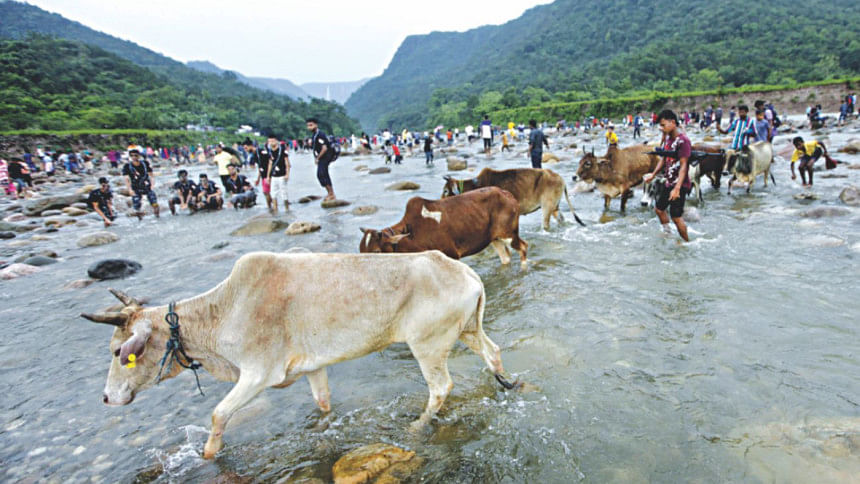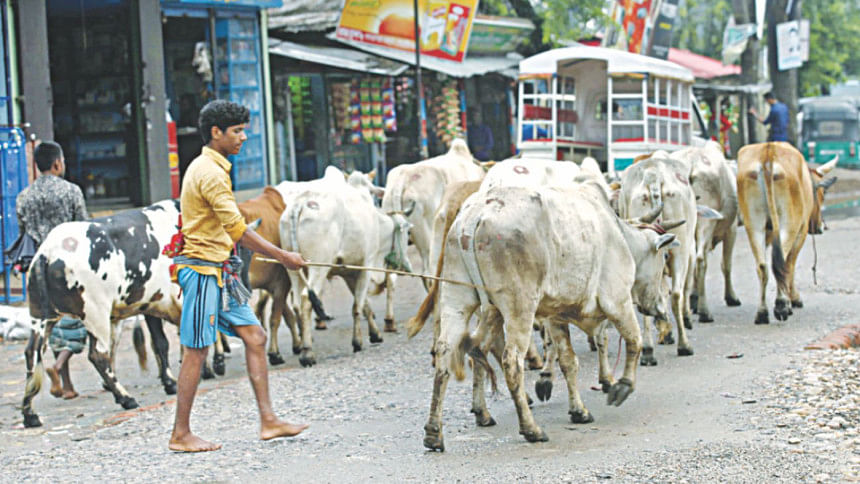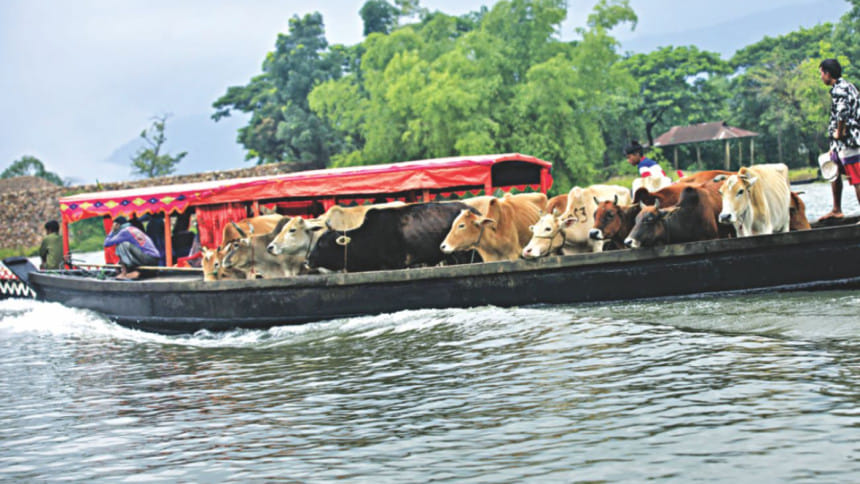Cattle smuggling on ahead of Eid

Thousands of cows are being smuggled into Bangladesh from India through border areas of the division, as demand of the animals will see rise for sacrificial purpose during the Eid-ul-Azha.
Indian cattle traders sell cows to Bangladeshi traders at many bordering villages and the cows are being smuggled into the country through managing the border forces of both the countries.
To control the smuggling, legalise the smuggled cows and get customs duty from it, customs, excise and vat office in Sylhet officially declared three new corridors in three districts of the division last year along with the older one in Moulvibazar district but the smuggling sees rise day by day.

“Many of the cows are also bringing in 'foot and mouth disease', locally known as 'khura rog,' which is creating a severe threat to our local farm cows,” said Dr Md Gias Uddin, deputy director of the Department of Livestock in Sylhet.
The situation is also posing threat to local cattle farmers, who target the Eid-ul-Azha as their biggest selling opportunity with high price, he added.
Md Shafiqul Islam, customs, excise and vat commissioner in Sylhet, said the department has permitted corridors at Majhergaon in Sylhet's Companiganj upazila, Balla in Habiganj, Chhatak in Sunamganj and Sharifpur in Moulvibazar.
“We are taking Tk 500 as duty for each smuggled cow at these corridors to legalise the smuggled cows, although the control of smuggling is under the purview of Border Guard Bangladesh (BGB) who are in-charge of the security and preventing smuggling through the border areas,” the commissioner said.
During a recent visit to bordering Bichhanakandi area in Gowainghat upazila of Sylhet, this correspondent found that hundreds of cows are being smuggled from India through hills and water bodies and then carried to different farms in Sylhet.
Bishwajit Kumar Paul, upazila nirbahi officer of Gowainghat, said these cows were not supposed to cross the border in the upazila as the district's only corridor is at Compainganj upazila.

“After BGB seizes these cows at the border, they take the duty with a receipt in the name of nearest corridor and let these cows enter, although we do not know whether all these cows are being marked and legalised,” the UNO said.
Meanwhile, to prevent incoming diseased cows, Department of Livestock in Sylhet has set up four quarantine stations at Bitoli of Juri upazila in Moulvibazar, Tamabil in Gowainghat, Zakiganj and Sutarkandi of Beanibazar in Sylhet but due to manpower shortage these quarantine stations are not functional yet.
Dr Gias Uddin, deputy director of the Department of Livestock, said, “We built these infrastructures as primary station to check whether the imported cows have any disease. Most cow diseases like 'foot and mouth disease' are quick spreading and when an affected cow is kept with a flock, all of the cows are at risk of being affected.”
According to the department, more than five lakh cows are sacrificed during the Eid-ul-Azha in the division every year. Local seasonal cattle farmers raise more than three lakh cows and another three lakh cows enter the market from household rearers.

 For all latest news, follow The Daily Star's Google News channel.
For all latest news, follow The Daily Star's Google News channel. 



Comments